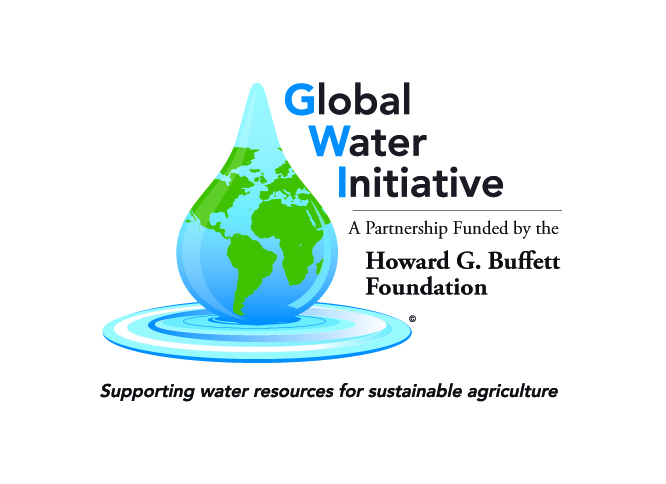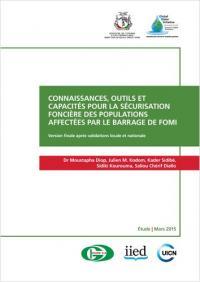Focal point
Location
La GWI en Afrique de l'Ouest est mise en œuvre par un consortium constitué par IIED et l'UICN, et travaille principalement dans cinq pays : le Burkina Faso, la Guinée, le Mali, le Niger et le Sénégal.
Le travail de la GWI en Afrique de l'Ouest est guidé par la vision et la mission de la GWI au niveau mondial. En effet, toutes les régions de la GWI s’efforcent d’engendrer un changement significatif par le biais d'un plaidoyer et d'initiatives politiques intégrés pour:
- soutenir une gouvernance et l’élaboration de politiques plus efficaces à tous les niveaux pour garantir l'eau pour l'agriculture.
- améliorer la qualité des connaissances et rendre les informations pertinentes accessibles aux exploitants familiaux, tout en optimisant l'utilisation et les pratiques de gestion de l’eau des principales parties prenantes.
Members:
Resources
Displaying 36 - 40 of 64Knowledge, tools and capacity for land tenure security for people affected by the Fomi dam
The Fomi dam project is located on the Niandan tributary of the Niger in Guinea, 30 km upstream of the Niandan-Niger confluence, near Kankan (region of Upper Guinea). In development since 1988 with an update of the feasibility study in 1999, the Fomi project is integrated in the Sustainable Development Action Plan (SDAP) of the Niger Basin Authority (NBA) since 2007. An Environmental and Social Impact Assessment, consisting of an Environmental and Social Management Plan, Involuntary Resettlement Plan and a Local Development Plan, was completed in 2010.
Connaissances, outils et capacités pour la sécurisation foncière des populations affectées par le barrage de Fomi
Le projet de barrage de Fomi se situe sur le Niandan, affluent du Niger en Haute-Guinée, non loin de Kankan. Le projet Fomi est intégré au Plan d’action de développement durable (PADD) de l’Autorité du Bassin du Niger (ABN) depuis 2007. Une étude d’impact environnemental et social, composée d’un plan de gestion environnementale et sociale, d’un plan de réinstallation involontaire et d’un plan de développement local, a été finalisée en 2010.
Connaissances, outils et capacités pour la sécurisation foncière des populations affectées par le barrage de Fomi
Le projet de barrage de Fomi se situe sur le Niandan, affluent du Niger en Haute-Guinée, non loin de Kankan. Le projet Fomi est intégré au Plan d’action de développement durable (PADD) de l’Autorité du Bassin du Niger (ABN) depuis 2007. Une étude d’impact environnemental et social, composée d’un plan de gestion environnementale et sociale, d’un plan de réinstallation involontaire et d’un plan de développement local, a été finalisée en 2010.
Defining security of land tenure in irrigation schemes in Niger
In Niger the land converted for public use is now facing a dual problem: on one hand, customary landowners or their descendants claim property rights on this space which supposedly belongs to the State, on the other hand, government bodies who manage this area do not have the legal documents to justify the State's rights over the developed (irrigated) land and, consequently, to protect it. How to ensure secure land tenure for the State on the developed land while preserving the legitimate rights of those working the land?
Defining security of land tenure in irrigation schemes in Niger
In Niger the land converted for public use is now facing a dual problem: on one hand, customary landowners or their descendants claim property rights on this space which supposedly belongs to the State, on the other hand, government bodies who manage this area do not have the legal documents to justify the State's rights over the developed (irrigated) land and, consequently, to protect it. How to ensure secure land tenure for the State on the developed land while preserving the legitimate rights of those working the land?





